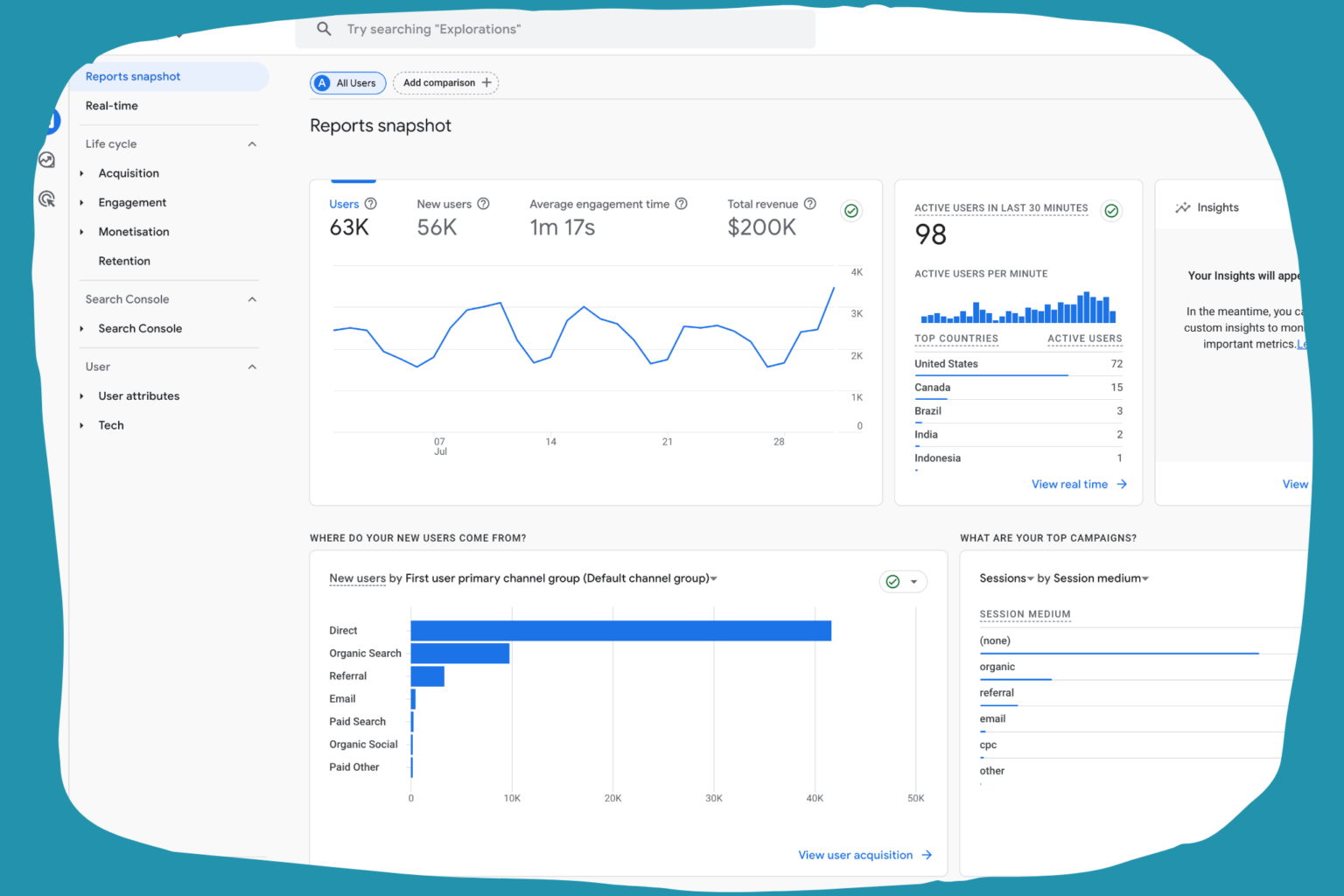Google Analytics & SEO Coaching – Getting Started

The beginning of this month saw the end of another Digital Marketing Skills Bootcamp, every time I come to the end of one I can’t believe how quickly they’ve gone by. I had been expecting some down-time to reset as I usually do at this time of year, however the lull didn’t come; I’m not complaining, I’m self-employed, we don’t like it when there are lulls! Fortunately I had a week booked off at the end of the month so, enforced rest and relaxation did take place.
We despatched the teenager at a week long summer camp and used the opportunity to visit Bath and the Cotswolds which is an area of England I haven’t visited since I was a child. You’d be forgiven for thinking the photo above was Tuscany or the South of France, however it was just 10 minutes outside of Cheltenham and absolutely stunning. We finished the week by heading to London to pick the teenager up and used the opportunity to see Witness For The Prosecution at London County Hall which I can highly recommend.

Small Business Coaching: GA4 and Google Search Console
July brought a new client on my six week digital marketing coaching programme who wanted support with understanding Google Analytics (GA4) so that they could work out what was going on with their website. As is the case with many of my clients, they had a lovely, shiny new website but were then stuck on what to do next to ensure people were visiting the website landing pages and to understand how they found them.
Week by week, over Zoom, we covered everything from setting up GA4 and Google Search Console to essential SEO techniques that would be straightforward for them to implement. We uncovered large images that needed optimising (basically the file size was too large) and I was able to provide resources and simple instructions to follow so that they could do a lot of the legwork themselves rather than having to pay their developer for more time.
If you’re in a similar position, there are a number of key steps to make sure your website is working as hard as it can for your business.
Set Up Google Analytics 4 (GA4)
This tool is non-negotiable if you have a website and want to make informed decisions about your online presence.
GA4 is the latest version of Google’s web analytics tool which will give you insights into how users interact with your website. As a start you’ll be able to find out how people are finding your website, what they’re doing when they get there as well as demographic information about your visitors.- Set up Google Search Console
This is a free tool that helps you monitor, maintain, and troubleshoot your website’s presence in Google Search results. It will tell you what keywords are causing your website to show up and how often your pages appear in search results. It will also tell you if there are any issues Google has with indexing your website. By regularly checking Google Search Console, you can monitor how your website is performing on organic search and take action if needed. Optimise Your Images
It’s easy to overlook, but large, unoptimised images can seriously slow down your website. This affects user experience and, crucially, your SEO. There are simple tools and techniques to resize and compress images without sacrificing quality – a must-do for every website.Review and Refine Your SEO
Search engine optimisation isn’t a one-time task; it’s an ongoing process and results can take time. Focus on the basics first—like ensuring your site is mobile-friendly, images are optimised and that you’re using unique page titles. From there you can explore more advanced techniques, such as structured data and local SEO, depending on your business needs.Set Up Key Events in GA4
Understanding what actions visitors take on your site—like button clicks, form submissions, or downloads—is essential. By setting up key events, you can track these interactions and see what’s working and what’s not. This helps in fine-tuning your marketing efforts to better meet your business goals.Regularly Review Your Data
It’s one thing to set up these tools, but another to actually review and use the data they provide. Regularly monitoring your analytics can help you spot trends, identify issues, and adapt your strategy as needed.
Don’t just collect the data—use it!



